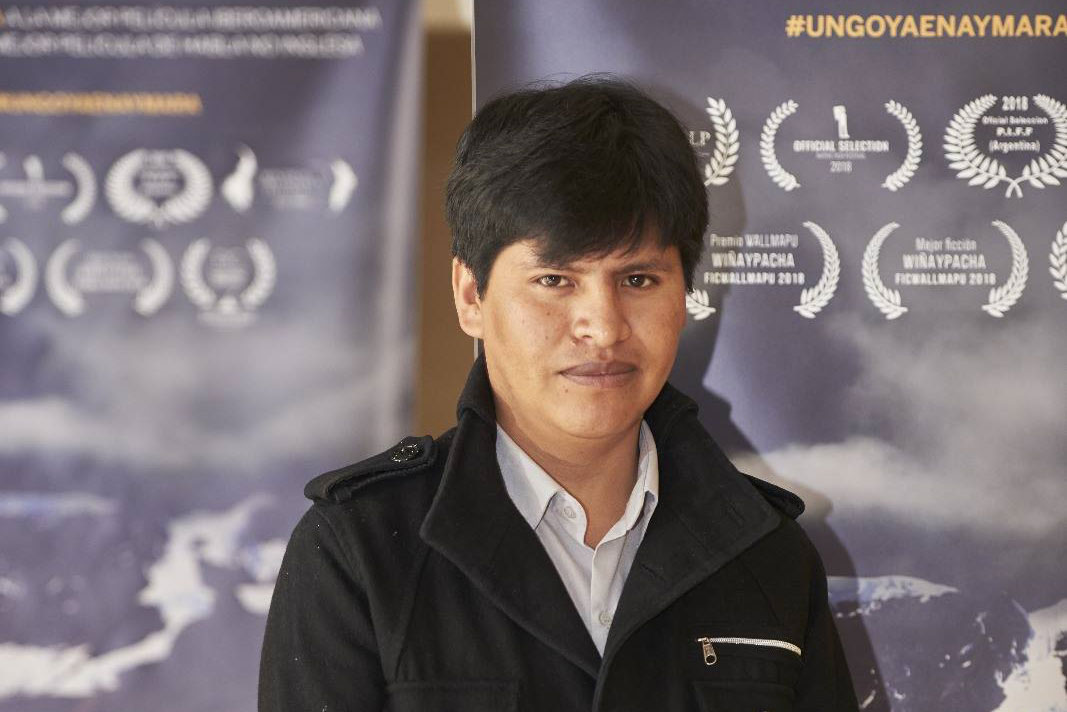Editor’s note: When the celebrated Peruvian filmmaker Óscar Catacora passed away last month, at the age of thirty-four, we asked independent film curator David Hernández Palmar to share a tribute. Catacora’s final feature film, Wiñaypacha, screened at the Smithsonian’s Mother Tongue Film Festival earlier this year.
Accepting the departure of those who have helped us to understand that what we are doing is on the right track is no easy task, but those of us who stand up to move forward know how to do it, knowing that our stories deserve to be told.
So this is how we remember Óscar Catacora, with his certainty as to why he makes films: “I would not like to receive compliments or congratulations simply because I present a relevant topic. I would like to be recognized for being a good director.”
But Óscar was not just a good director. He was also a scriptwriter, producer, actor, and director of photography, and those of us who knew him were amused when he told us about his film references: Akira Kurosawa, Pasión de Gavilanes, Charlie Chaplin, and Dragon Ball Z, among others, from which he absorbed photography and techniques for his own cinematography.
Wiñaypacha, which means “eternity” in the Aymara language, is a metaphor for the passage of time. For Óscar, that time is cyclical, since it never ends and returns again and again. Time is a ritual, like the name of the film that made him known to the world, and that space and time now receives him upon his return to our mother. Óscar’s sad and sudden departure caught us by surprise within the Indigenous film family of Abya Yala (or the Indigenous Americas, from the Kuna-language term).
We want to thank Óscar for everything he did, and we remember how his thoughts unsettle the notion that we are a species apart from nature: “Nature does manifest itself, and we asked the apus (spirits) for their blessing. I believe that the film Wiñaypacha would not have been possible without the participation of nature; it rained when we needed rain, it snowed when we needed it for that scene, and it didn’t rain when we didn't need it.”
Óscar’s gift of narrating and stopping time reiterates our narrative virtues as Indigenous filmmakers to capture time, but, above all, it invites us to review what and for whom we are making our films, with the certainty that nature’s love provides everything.
Brother Óscar, we harbor joy and strength so that the transition you have made toward Wiñaypacha is as full and serene as the Andean highlands.
*****
Óscar Catacora (August 18, 1987–November 26, 2021) was born in Ácora, in the Department of Puno, Peru. He was the director and actor of El Camino del Chulo (2007), screenwriter of La Venganza del Súper Cholo (2013), cinematographer of Aventura Sangrienta (2017), and director, screenwriter and cinematographer of Wiñaypacha (2017). Wiñaypacha was the first Peruvian feature film completely spoken in the Indigenous Aymara language. The film was Peru’s official submission for Best Foreign Language for the 91st Academy Awards, and it screened at the Smithsonian’s Mother Tongue Film Festival in 2021. Catacora received the Best Young Director, Best Film, and Cinematography Award at the Guadalajara Film Festival in 2018, among many other awards, for Wiñaypacha.
*****
David Hernández Palmar (Wayuu, of the Iipuana Clan, Colombia/Venezuela) is a filmmaker, independent curator, and film programmer with recognized experience in the Latin American region. He is also a photographer, journalist, researcher, and producer of several audiovisual works that have portrayed the Wayuu world.


